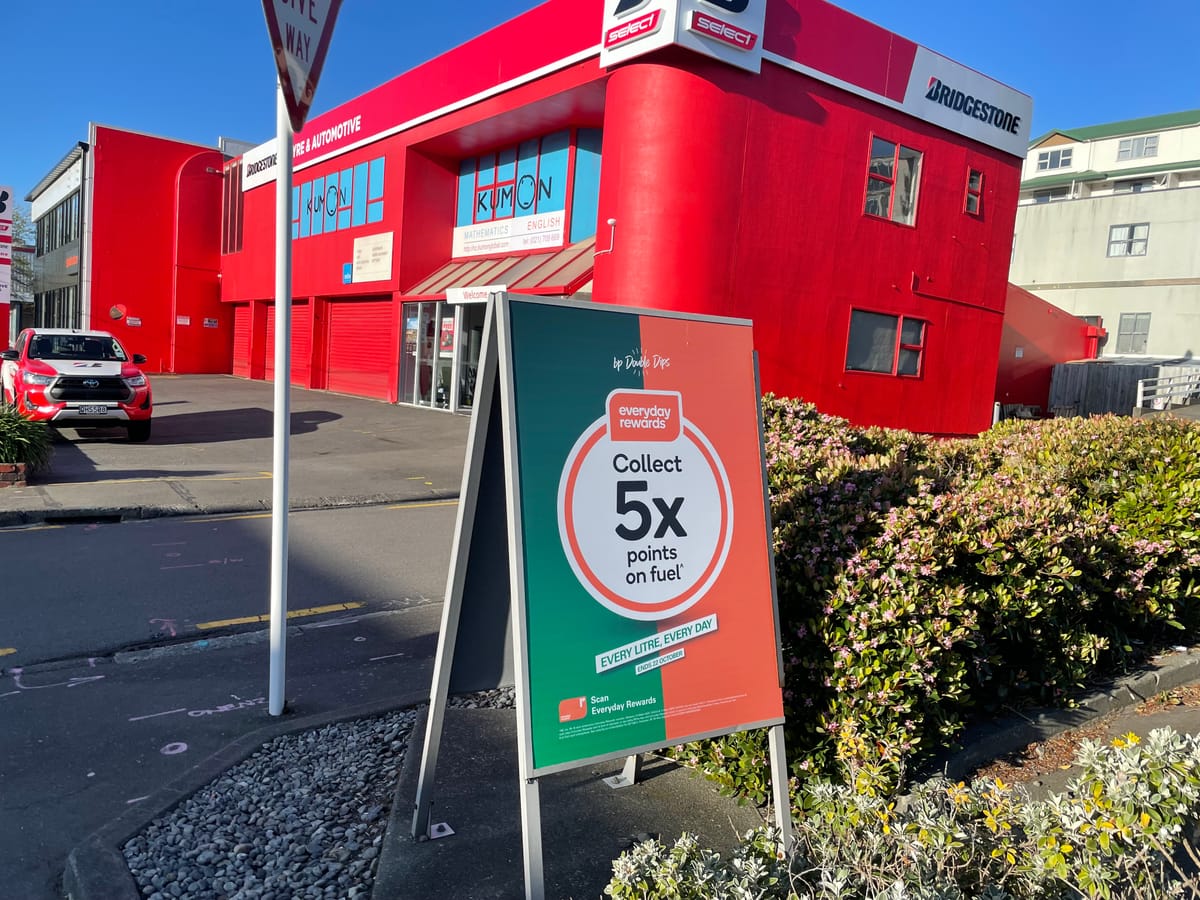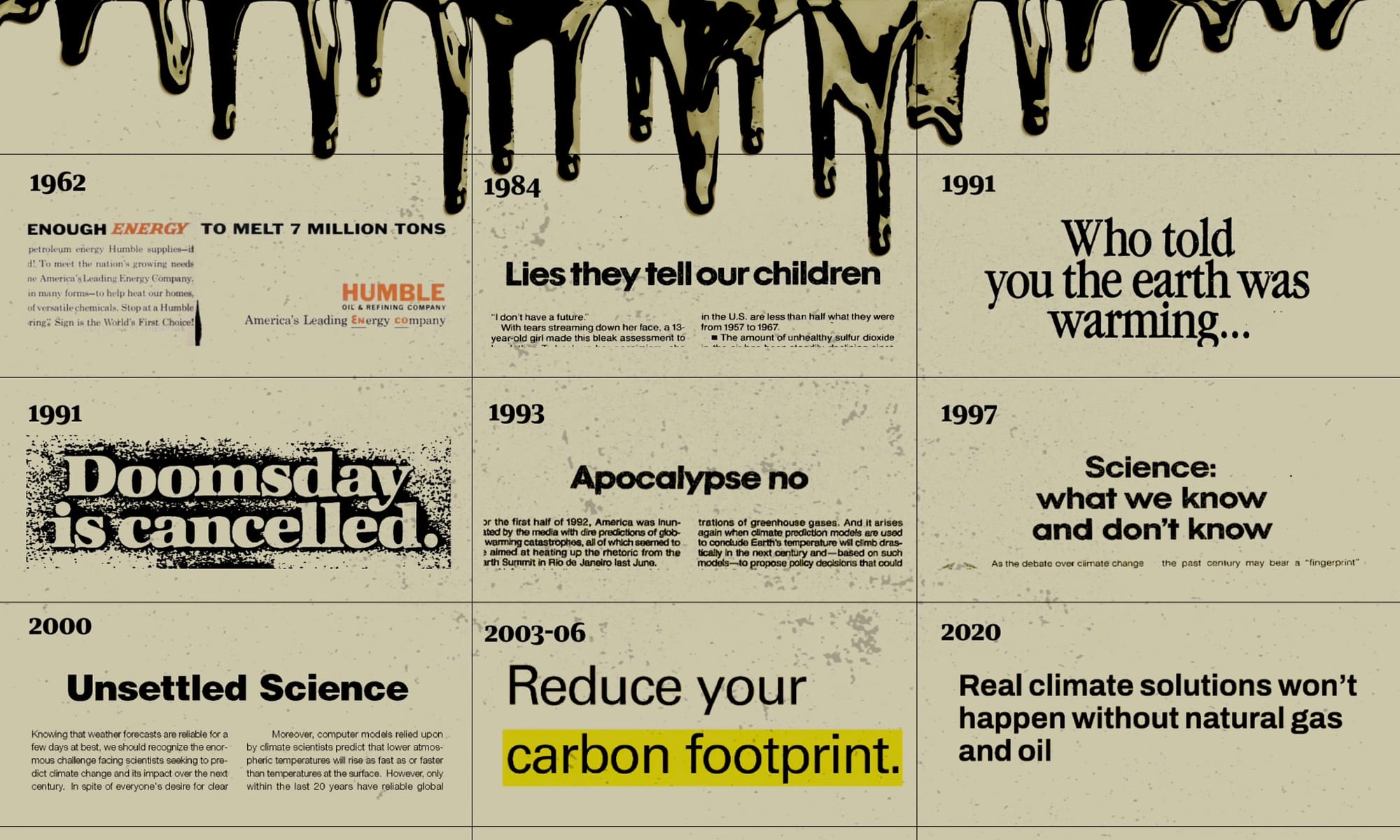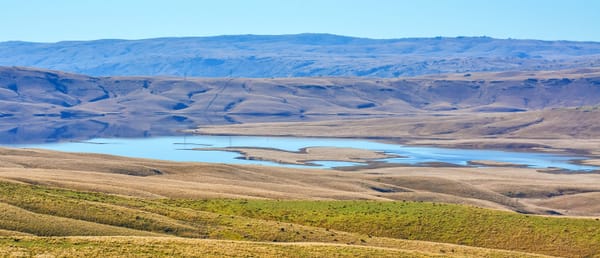Why do we let fossil fuel companies continue advertising?

Advertising has long been a seductive interest of mine. Until a couple of weeks ago, I was working at a small digital marketing agency. I’m fascinated by how it influences people, frames debates and shapes our community’s vision for the future.
Advertising has power, which is why I’ve been curious about fossil fuel advertising for months. It started when I realised that Woolworths (formerly Countdown) was partnering with BP with their Everyday Rewards card.
Woolworths has set targets to take action on climate change. They want to reduce their own pollution by half in the next five years. They want their operations to be carbon neutral by 2050, if not earlier. This is somewhat in line with the UN’s targets to address global warming.
Yet they’ve still decided to partner with an oil company through Everyday Rewards. Oil companies knew climate change was happening as early as 1959. They’ve known that their products pose a great risk to humanity since before my parents were born.
What did oil companies do with that information? They ran vicious ad campaigns telling people climate change was not real so they didn’t go out of business. They’ve continued lobbying to slow down our response to this threat. Their actions are dangerous and reckless in the face of extreme floods and Petone potentially being underwater in my lifetime.

BP isn’t supporting Everyday Rewards out of the goodness of their heart. They get customers. They get brand promotion. They get advertising space inside supermarkets, and they associate themselves with saving money and good vibes.
Once you start to look for it, you’ll find fossil fuel advertising is all around us. Z Energy, who are currently going to court for alleged misleading advertising about their climate efforts, spends big on billboards, TV ads, Facebook ads and more. They want to be seen positively, and in doing so people don’t ask questions about how expensive petrol is compared to electricity, and how damaging Z’s product is to the world.
When you add in advertising of highly polluting products like petrol cars and flights, you’ll see advertising is soaked in oil. Products like fossil fuel cars and flights heat the world and contribute to extreme storms like the recent floods in Dunedin. Toyota has a big brand campaign saying they want to get to carbon neutral… while lobbying internationally to get rid of deadlines to phase out fossil fuel cars. They point to their hybrids as their solution… but hybrids still pollute the planet more than electric cars, bikes or trains.
Like most people, many advertisers care about climate change. There is even a local ad agency group called Ad Net Zero who have signed up to take action on climate change. They want to limit the pollution that comes from using billboards and other ad spots. They’ve also promised to limit the pollution of their office space and operations.
Something is missing though. Their plans make no promise to stop advertising for fossil fuel companies and highly polluting products. Apparently making petrol-soaked products desirable is still sustainable because they’re working from a carbon neutral office.
It’s like how Wellington Airport says it’ll be carbon neutral in five years if you don’t count all the planes that take off and land. Fossil fuel flights are the entire reason the airport exists. It’s the same as advertisers taking on fossil fuel companies as clients. These companies exist to burn oil – and just because you plant a tree to offset your office lights doesn’t mean you can ignore that reality.
Who you do business with matters. For many advertisers, the moral tension that comes with caring about the environment and making money is obvious. A certified carbon neutral kiwi PR company was recently added to a shame list for the fact they work with Z Energy. They justified it by saying:
"We believe that real change comes from working within, advocating for sustainability from the inside out,"
I sympathise with their argument. The reality is that this is a client relationship: no matter what your values are, ultimately the fossil fuel company paying you has the final say.
How do we fix this problem?
We ban fossil fuel product advertising entirely.
Why should the companies that have actively lobbied to kill positive action on climate change in New Zealand be allowed to build positive relationships with people through ads?
Clearly the money is too powerful. Advertisers are constantly making campaigns that soothe people into thinking climate change is not urgent.
Climate change is urgent. And this idea isn’t unprecedented. Last month, the Hague passed a law banning fossil fuels products like petrol, diesel, flights and cruises from advertising in the city. Starting January, citizens of the Hague won’t be bombarded with positive, fun loving, fluffy campaigns made to ease the feeling that things need to change.
New Zealand has made a move like this before. In the 1990s, New Zealand banned smoking sponsorship and advertising. Some people really liked smoking, yet we still banned it. Why? Because the smoking companies were discrediting the idea that smoking was bad through advertising so they’d keep profiting.
Change smoking to “fossil fuels” and we have the exact same problem. Advertising is fundamentally about shaping someone’s idea of a desirable future. Why should fossil fuels companies be able to shape what our future looks like? They’ve already shaped it enough by contributing to deadly storms and sinking coasts.
Just imagine if the biggest advertising that you saw was for solar panel discounts. If instead of flights, it was for deals on train journeys to go to Ohakune or Auckland. Imagine if advertisers could only work hard making electric cars desirable.
Advertising can shape our desires for a future that’s better for the environment. We don’t need to see ad campaigns that are paid for by burning the world. Our politicians can ban fossil fuel





